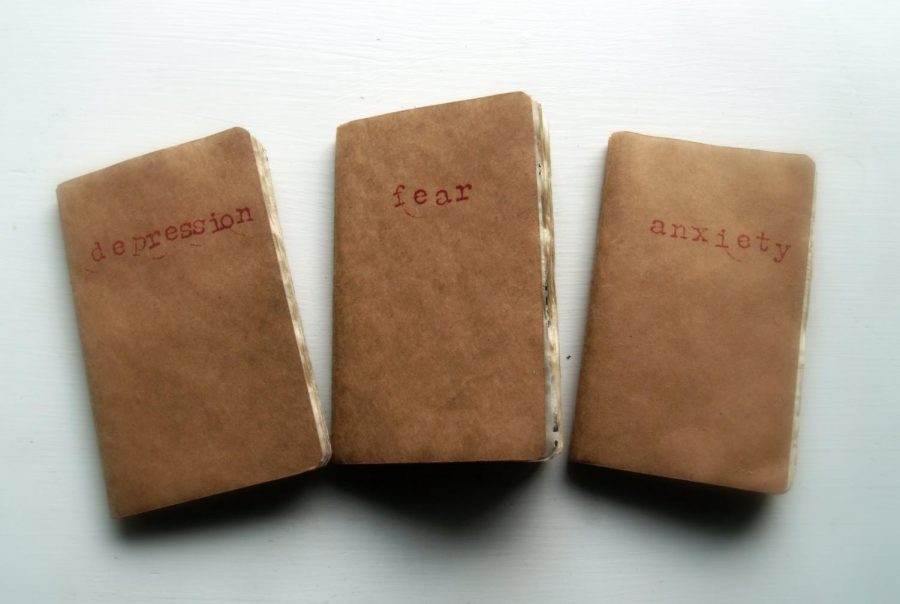Bell Let’s Talk starts the conversation about mental health
Books with the symptoms of mental illness on their covers
January 30, 2018
Mental health and illness is still a stigmatized issue all around the world, but with Bell Let’s Talk, one of Canada’s largest communications companies are trying to get mental health help to places that may never have had the chance to receive it.
Since 2011, Bell Let’s Talk has raised over 86 million dollars that help cover individuals support with access to mental health care, crisis and distress lines, child and youth outreach, individuals supported through technology-based programs, trained staff and volunteers and support for military families.
Bell Let’s Talk Day has been slowly becoming a tradition in Canada to bring awareness to mental illness and those who struggle with it. Just last year Bell Let’s Talk raised over six and a half million dollars and over 130 million interactions on social media– Twitter, Instagram, Snapchat, Facebook– breaking the previous record. Every text sent from a phone on Bell Canada, Bell ATS and Bell Aliant also donated to the cause.
For each tagged message or text, Bell donates five cents to mental health programs and initiatives.
Struggling with mental illness isn’t a new concept for former National Hockey League goalie, now a radio broadcaster for the Vancouver Canucks, Corey Hirsch.
Hirsch has written about his struggles with mental illness in two very powerful pieces in The Players Tribune. The first, telling his story of how he was diagnosed with Pure Obsessive Compulsive Disorder and how he nearly drove very fast off of a cliff after winning a Silver for Canada at the Olympics and being a black ace on the 1994 New York Rangers Stanley Cup winning team.
He realized during the Stanley Cup run something was wrong, then he nearly drove off of a cliff the summer.
Most recently in his second piece, he reminds everyone that there is someone there to talk to, even if you think there isn’t.
Northeast Valley News spoke to Hirsch about Bell Let’s Talk Day and some of the stigma there still is about mental health.
“What it does in Canada is it’s put mental health for a whole day right on the front page. It’s awareness where everyone knows that this is the day, everybody waits for it. Everybody is excited about it right? It gets people excited to talk about mental health.” Hirsch said of Bell Let’s Talk.
“So, what it does is more for awareness then to raise money. Which, you know, is what I love about it.” Hirsch continued. “The Money is a bonus, that’s great, but it just brings it to the forefront and people love it. It’s a real positive thing, its a very happy positive day. And we all know with mental health sometimes that’s not the case.”
In the end, the initiative is not without its flaws. More communities need to be supported, more professionals and volunteers, and more outreach.
The more people it reaches each year, the more it will help people start to realize that mental illness is just that, an illness.
“You don’t feel so alone.” Hirsch said after being asked about how people are now talking more about mental health. “The part (about mental health) that sucks, what you’re going through, you feel so alone. You open up and (it’s like) that guy, oh me too. It’s like anything, it makes you feel less alone.”
If you are in crisis, the National Suicide Prevention Lifeline can provide help and referral.
National Suicide Prevention Lifeline
1-800-273-TALK (8255) [24/7 hotline]
1-888-628-9454 (Spanish)
1-800-799-4889 (TTY)


